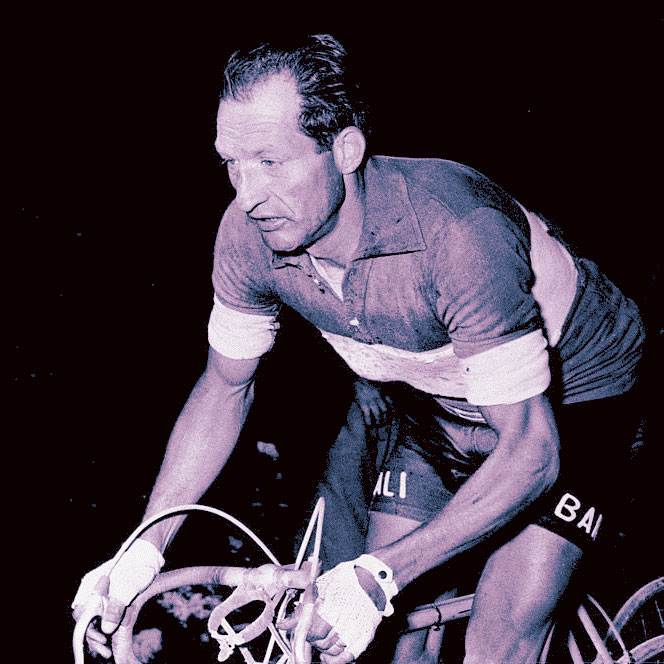
Gino Bartali is one of the greatest cyclists who ever lived. His rivalry with Fausto Coppi, himself one of the few riders who can challenge Merckx for the mantle of greatest ever, remains firmly implanted in the mythos of the tifosi. But it’s his actions off the bike—or more precisely, when not racing—that stretches his legacy far beyond mere bicycle racing.
His was a career cut short by war. The Italian won the 1936 and 1937 editions of the Giro d’Italia—aged just 21 and 22 respectively—to cement his status as Italy’s number one cyclist, and then turned his sights on the Tour de France. The 1938 edition of the Grand Boucle was to be his sole grand tour focus, and he didn’t enter the Giro. This was partially to silence critics who claimed he couldn’t perform outside Italy, and silence them he did: he won the Tour by over 18 minutes.
But he could not defend his title. With war looming, Italy declined to send a team to the next year’s edition of the race.
While war broke out, Bartali was permitted to train on Italy’s roads. More than a decade after his death, evidence came to light that it wasn’t only training that Bartali had been doing on those long 380km rides alone.
Details about Bartali’s actions during this time period began to emerge as part of a university research project that collected testimonies from nuns, Holocaust survivors, and their descendants.
The research project discovered that Bartali went ‘underground’ during the war. Riding between Florence and San Quirico, near Assisi, the soldiers who guarded the road believed he was merely training. In fact, important documents were hidden inside the frame and saddle of his bicycle. He was smuggling identity photos to a convent that produced counterfeit papers, with the mission of helping save persecuted Jews.
Gino Bartali kept these tremendous acts of bravery secret even from his wife. With a seemingly pious quote that became much more poignant as these revelations emerged, he said, “Good is something you do, not something you talk about. Some medals are pinned to your soul, not to your jacket.”
That remains an understatement: his actions saved the lives of 800 Jews during the war. In 2013, the Yad Vashem Memorial granted Gino Bartali the posthumous distinction of “Righteous Among the Nations,” awarded to those who placed their lives in danger in order to save Jews.
Bartali returned to racing after the war, winning the 1946 Giro d’Italia and the 1948 Tour de France, and forging a bitter rivalry with Fausto Coppi that would become the stuff of legend. Ah, but those are different stories.


